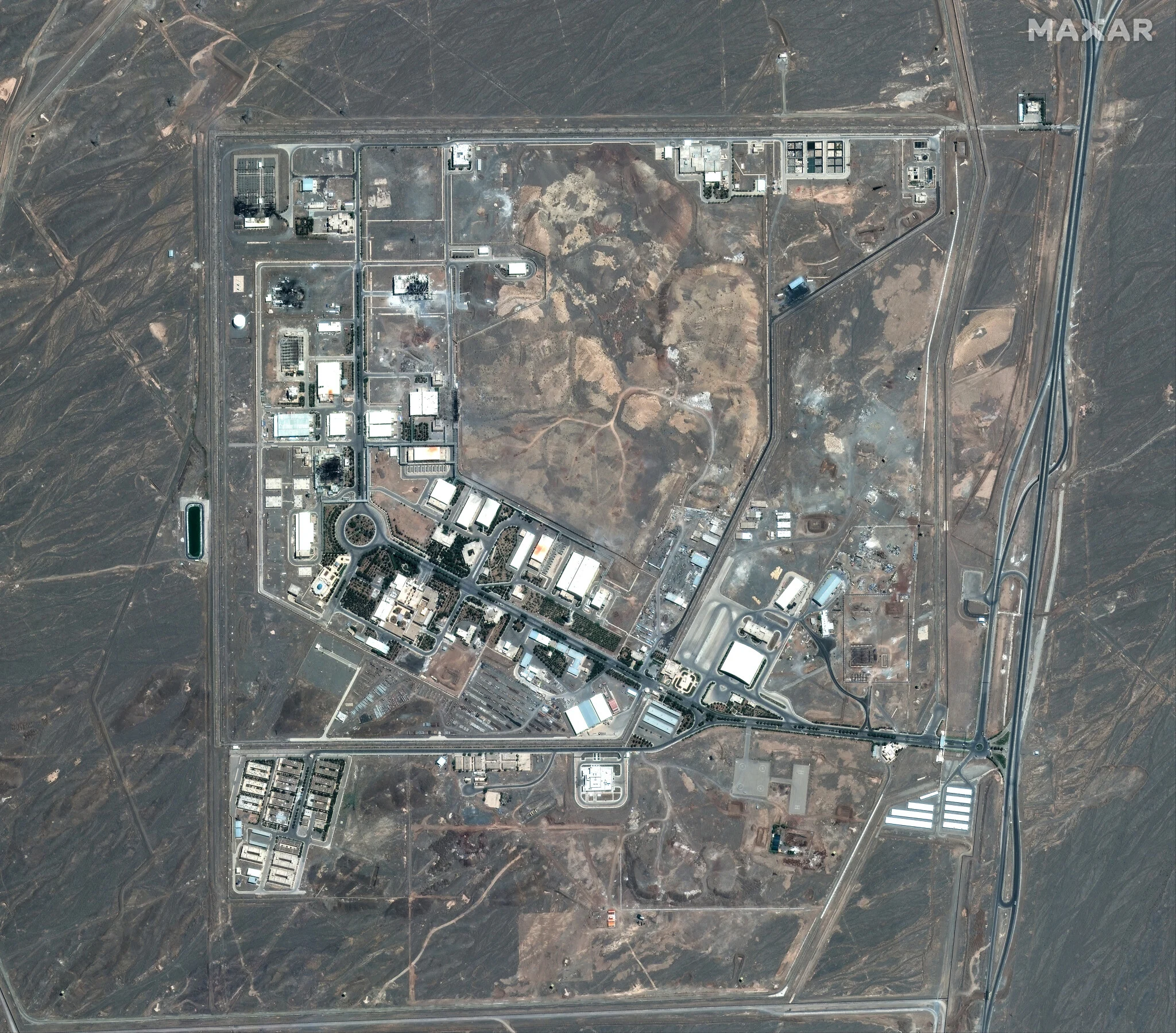“Image: Natanz nuclear facility satellite view © Hamed Saber (Flickr/CC‑BY‑2.0)[Maxar Technologies]”
Date: June 22, 2025
Washington/Tehran —
In a significant escalation of tensions in the Middle East, the United States has carried out targeted airstrikes on three of Iran’s key nuclear facilities, marking one of the most direct military actions in recent years.
According to defense officials, precision strikes were launched late Saturday on the Fordow Fuel Enrichment Plant, the Natanz Nuclear Facility, and the Isfahan Research Center. The operation was executed using B‑2 Spirit stealth bombers and Tomahawk cruise missiles launched from U.S. naval forces in the region.
🔴 U.S. Statement
Former U.S. President Donald Trump, who ordered the strike, confirmed in a televised address:
“Iran’s nuclear sites have been completely and totally obliterated. This is a clear message — the world will not tolerate nuclear blackmail.”
The Pentagon described the strikes as “surgical and strategic,” aiming to dismantle Iran’s uranium enrichment capabilities without triggering civilian casualties.
📍 Targeted Sites
- Fordow Facility (underground enrichment site): Severely damaged
- Natanz Facility (major enrichment hub): Surface infrastructure destroyed
- Isfahan Site (centrifuge development and research): Struck and disabled
Satellite imagery shared by defense sources shows significant damage at all three locations.
🌐 International Response
- Israel hailed the operation as a “decisive move to protect global stability.”
- The United Nations expressed “deep concern,” urging immediate diplomatic dialogue to prevent further escalation.
- Russia, Turkey, and China strongly condemned the strikes, calling them unilateral and provocative.
- Iran’s foreign ministry labeled the attack as an “act of war” and promised a “proportionate response.”
⚠️ Iran’s Retaliation and Regional Escalation
Within hours of the U.S. assault, Iran launched missile and drone attacks targeting Israeli military installations, prompting countermeasures from the Israeli Defense Forces. Defense analysts fear this could trigger a broader regional conflict involving allied forces.
Meanwhile, the U.S. military has redeployed B‑2 bombers to Guam, signaling preparations for potential follow-up operations.
📉 Market Impact
The geopolitical tension has caused immediate disruption in global markets:
- Crude oil prices surged by over 12% amid fears of supply chain disruption.
- Stock indices across Asia and Europe opened lower.
- Gold and U.S. Treasury bonds saw increased demand as investors sought safer assets.
🕊️ What Lies Ahead?
Global leaders are now calling for urgent talks. A closed-door UN Security Council meeting is scheduled within the next 24 hours to address the unfolding crisis.
Defense analysts caution that the next 48–72 hours will be critical in determining whether this remains a limited conflict or escalates into a broader military confrontation.
📌 Key Highlights
| Topic | Details |
|---|---|
| Who | U.S. Armed Forces, ordered by Donald Trump |
| What | Airstrikes on 3 Iranian nuclear sites |
| Where | Fordow, Natanz, and Isfahan (Iran) |
| Why | To prevent Iran’s nuclear advancement |
| Outcome | Heavy damage to nuclear facilities, rising global tensions |

